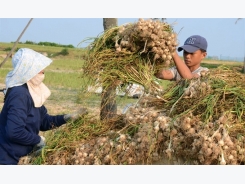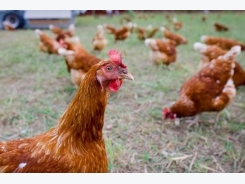More countries acting to combat antimicrobial resistance in agriculture

Efforts to confront the spread of antimicrobial resistant pathogens on farms and in food systems are gathering momentum.
This is thanks to strong backing by governments and technical support that is boosting national capacities to respond to the problem, FAO said.
Antimicrobial medicines are widely used in livestock, poultry and aquaculture operations to treat or prevent diseases.
The over-use and misuse of antimicrobial medicines for human and animal health, including routine use of growth promoters, drives the emergence and spread of disease-causing pathogens that are resistant to antibiotics and increasingly difficult to treat.
The first annual survey by FAO, the World Organization for Animal Health (OIE), and the World Health Organization (WHO) on progress made in establishing national AMR action plans, conducted in 2016, found more than 6.5 billion people - or more than 90% of the world's population - now live in a country that already has, or is developing a national action plan.
Nearly all of these plans cover both human and animal health in line with the recommended "one health," multisectoral approach.
Since that survey, more countries have either taken strides towards finalizing their plans or have brought them fully into play.
The latest country to unveil a national action plan to tackle the spread of antimicrobial resistance using a "one health" approach is Kenya, which launched its national AMR policy and action plan this week.
Kenya is one of 12 African and Asian countries* participating in an FAO project, financed by the UK's Fleming Fund, to build national capacities to monitor and respond to AMR risks in food and agriculture.
Yet despite progress, the global push to tackle AMR is still in its early stages, and there are weak points that still need to be shored up - particularly in the food and agriculture sectors of low- and middle income countries, key battlegrounds against "superbugs" resistant to conventional medicines - FAO also cautioned.
Có thể bạn quan tâm
Phần mềm

Phối trộn thức ăn chăn nuôi

Pha dung dịch thủy canh

Định mức cho tôm ăn

Phối trộn phân bón NPK

Xác định tỷ lệ tôm sống

Chuyển đổi đơn vị phân bón

Xác định công suất sục khí

Chuyển đổi đơn vị tôm

Tính diện tích nhà kính

Tính thể tích ao hồ



 EAHE systems may cool livestock facilities effectively
EAHE systems may cool livestock facilities effectively  New EU rules on free-range chickens came into…
New EU rules on free-range chickens came into…